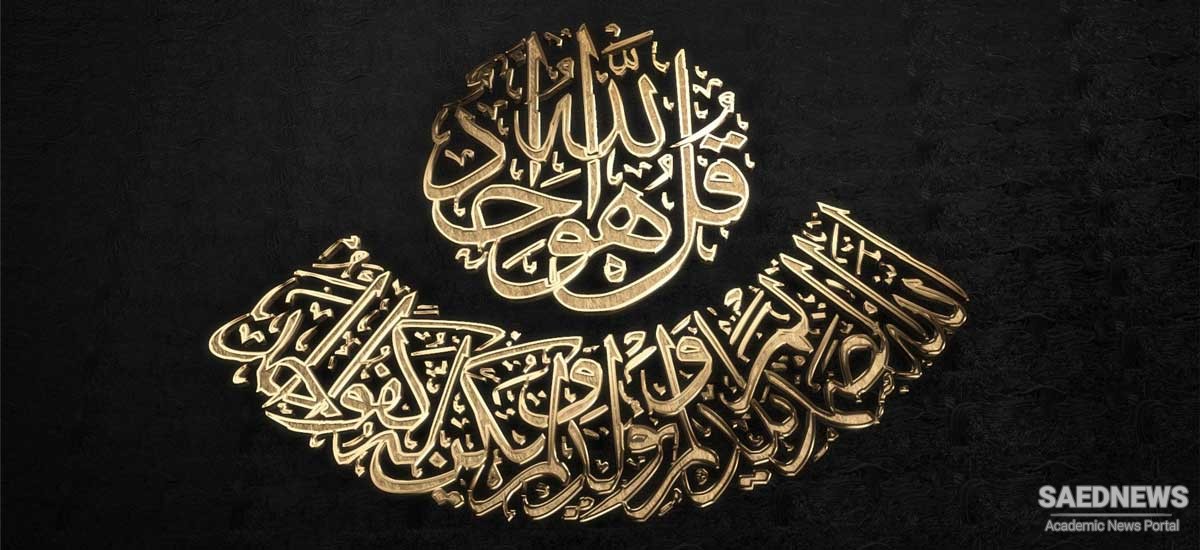People also fail to distinguish between conflicts that use the name of Islam and those that actually have much to do with the religion. “In the Islamic world, because religion remains a powerful force, its name is still used in support of whatever causes arise that lead to contention and conflict, although the Qur’an emphasizes that war must be only for defense of one’s homeland and religion and not be offensive and aggressive,” writes Nasr. “Some countries bomb other countries in the name of democracy and human rights, while some Muslims commit acts of violence and terror in the name of Islam,” Engineer emphasizes. “We must try to differentiate between ideals and their misuse by some vested interests of frustrated people.”
According to a number of Muslim scholars, the only justified cause of war is an attack on Muslims, and even then there should be strict proportionality and obedience of the humanitarian laws of combat. (Interestingly, Islam has considered rape a war crime right from the start, even in retaliation for such an atrocity from the other side. In contrast, international law has recognized rape as a war crime only recently.) Peace is a natural state in Islam, and war is unnatural or situational, as stated in both the Qur’an and Hadith literature. Islam does not tolerate aggressive war, even with humanitarian restrictions. “In Islam, war is restricted to the purpose of defense,” Turkish scholar Ergun Capan writes.
“The principle in Islam is peace,” writes Turkish Professor Ahmet Gunes. “According to the law, the permission to kill—no matter what faith a person believes in—is restricted to combatants actively participating in an active war, to combatants who are determined to inflict harm. Thus assaults on civilian targets are not in agreement with the principles of Islam, even during wartime, and this includes suicide attacks.” These rules have been laid down by the Qur’an and the Prophet Muhammad and were followed by the first caliphs.
“Muslims are commanded to exercise self-restraint as much as possible,” states Abdullah Yusuf Ali, author of a respected translation of the Qur’an. “Force is a dangerous weapon. It may have to be used for self-defense or self-preservation, but we must always remember that self-restraint is pleasing in the eyes of God. Even when we are fighting, it should be for a principle, not out of passion.” An entire group of progressive scholars have attempted to make Islam completely congruous with nonviolence. They argue that since times have changed so drastically from the time of Muhammad, even the limited use of force is not acceptable now for settling differences. Furthermore, the presence of small Muslim minority communities around the world makes even this impractical, and the presence of weapons of mass destruction far beyond the conception of the seventh century renders any war abhorrent today.
“As a minor element in the life of the prophet and the scripture, violence should be of no greater importance to Muslims today than it was then,” AbuNimer writes, summarizing their position. “The Hadiths and Islamic tradition are rich sources of peace-building values and if applied in Muslims’ daily lives will lead only to nonviolence and peace.” In this age of a democracy, the notion of war is said to be outdated. “In today’s conditions, when democracy prevails, even if Muslims are persecuted anywhere, democratic remedies will have top priority,” asserts Engineer. “Terrorism can never be elevated to the category of jihad, in any sense of the Qur’anic term.”
“Peace is far more fundamental to Islam than war,” he adds. “War, at best, could be an instrument of establishing peace in some exceptional circumstances or for defending against aggression.” So, it is asserted that even though violence in keeping with the teachings of the Qur’an and the Hadith are permissible in theory, in the modern world, Muslims cannot use violence. Muslims can be true to Islam only by hewing to nonviolence and utilizing qualities in the religion such as social justice, perseverance, self-sacrifice, and the beliefs in the unity of Muslims and of mankind.
And Islamic traditions emphasize that those who work for social justice are as good as warriors. Abu Hurayrah, a companion of Muhammad and a major narrator of the Hadith, states, “The prophet said, ‘The one who looks after and works for a widow and for a poor person, is like a warrior fighting for Allah’s cause or like a person who fasts during the day and prays all the night.’ ”
Some scholars have interpreted the notion of nonviolence in Islam as being subordinate to that of justice. Justice in Islam does get precedence before pacifism, and the duty of Muslims is to work for it. So, several Qur’anic verses prohibit the taking of life—except in just cause: “Nor take life—which Allah has made sacred—except for just cause” (17:33). “Take not life, which Allah hath made sacred, except by way of justice and law” (6:151). But proponents of nonviolence within Islam say that even if the ultimate goal is justice, not peace, the best way to attain that goal is nonviolence.


 Predecessors of Modern Iranian languages
Predecessors of Modern Iranian languages














































